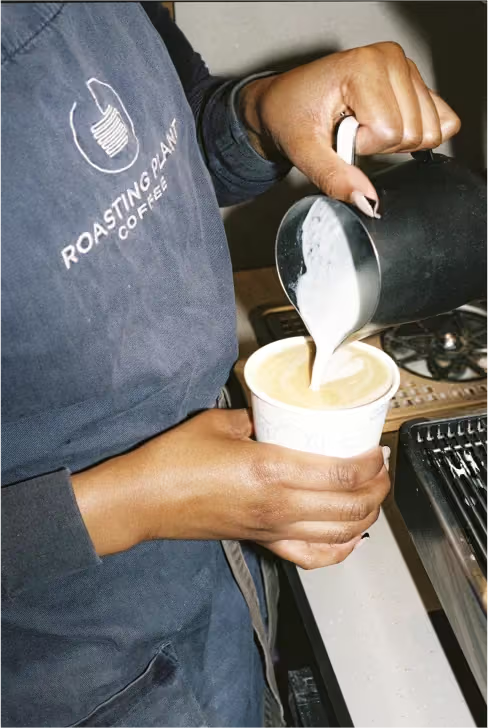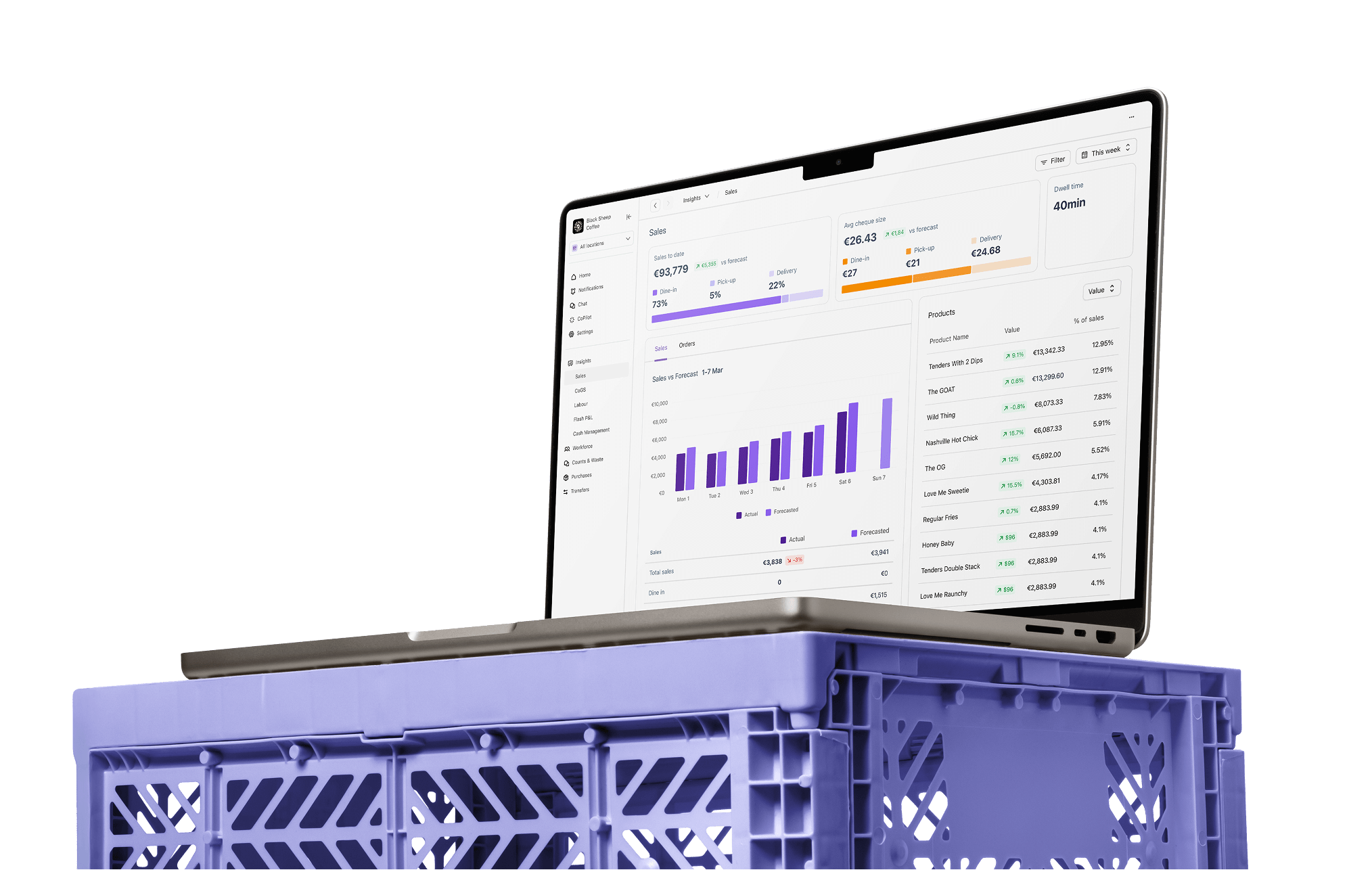The impact of the 2024 UK Autumn Budget on the hospitality sector
You’ve probably seen headlines and updates in the news about the new UK Autumn Budget.
It’s a lot to process, and it’s not looking great.
In this article from The Times, industry leaders warn that the budget’s new tax and wage hikes could push hospitality businesses into “survival mode.” How? By rising costs forcing operators to cut back on investment, reduce staff hours, and increase prices.
If you’ve come here for a breakdown of how this new budget impacts your business, you made a good choice. Keep reading to see how the new budget impacts the hospitality industry. Plus, we’ll show you how to protect your profits from the limitations and price increases coming our way.
How does the 2024 Autumn Budget impact hospitality businesses?
Let’s walk through how the new budget will impact the hospitality industry.
Business rates relief reduction
The budget removes certain reliefs, which may increase costs for businesses in the hospitality sector — particularly smaller and independent establishments.
For example, hospitality businesses have benefited from a 75% reduction in business rates since November 2023, capped at £110,000 per business. This reduction was set to last until the end of March 2025.
However, the new budget throws a spanner in the works.
The relief is set to drop to 40% for 2025-26 from the 1st of April 2025, up to an £110,000 cap. With this decrease, research estimates that the average restaurant’s rates bill will rise from £5,051 to £12,122.
In an open letter to the Chancellor, UK Hospitality Chief Executive, Kate Nicholls, ask the Government to fix business rates and protect hospitality businesses:
We propose that your Government introduces a new lower permanent and universal multiplier for the hospitality sector to be adopted across all nations of the UK All hospitality businesses should benefit from that multiplier removing the cap that has acted as a disincentive to growth as employers decide that opening a second premises is simply not worth the cost.
National Insurance (NI) rate increase
Employer National Insurance contributions will rise to 15% in April 2025, an increase of 1.2% This increase will likely impact payroll expenses. This could especially challenge smaller hospitality businesses that have high staff numbers and rely on seasonal employees.
Concerns from major players also anticipate the financial impact of the lower National Insurance threshold (and higher minimum wage costs which we cover in the next section).
Fuller’s, for example, expects to halve its annual investment budget as a result of these changes.
The good news is that small businesses will receive some support via an increase in the Employment Allowance, helping some with payroll costs despite the NI rise.
But is this enough to support the industry as labour costs rise?
Hospitality businesses already spend a huge chunk of revenue covering labour costs, and this NI increase only adds fuel to the fire. It’ll be hard for all hospitality businesses to ensure labour costs don’t cut into profits.
Wages and living costs
The government continues to back the National Living Wage, rising by 6.7% to £12.21 for those aged 21 and over in April 2025.
There’s no doubt that this benefits hospitality employees, which helps to combat the cost-of-living crisis. But the flip-side? It increases labour costs for businesses already dealing with post-pandemic financial strain.
Again, this is a challenge for hospitality businesses. When labour costs are already such a huge expense, an increase to the minimum wage makes it even harder to balance revenue, profits, and labour spending.
Conor Sheridan, CEO of Nory, talks about the impact of rising wages and the need for Government support to combat these rising costs:
Following the Chancellor’s Autumn Budget, restaurants now face rising pressures from a minimum wage increase of over 6%. This is three times the current inflation rate and although a positive for individuals, will massively impact labour costs, which already account for a significant portion of business expenses for many venues.
As we move forward, it’s essential for the government to prioritise measures that help to alleviate these pressures. Without targeted support, we risk stifling the growth and recovery of a vital sector that has the potential to drive economic growth and create further jobs across our communities.
Are there any upsides to the budget?
Yes, there are some positive elements of the new budget.
- Corporate Tax cap. The budget confirms a cap on the Corporate Tax rate at 25%. This is pretty good news, as it may encourage investment — which is particularly beneficial for larger hospitality chains.
- Alcohol duty. Pubs benefit from a duty cut on draught products, easing costs for smaller breweries and pubs. The Government will reduce all rates by 1.7% in cash terms. This will increase the value of Draught Relief to 13.9% for qualifying beer and cider products, and 26.9% for qualifying wines.
- Environmental incentives. Investments are allocated towards green initiatives, which may support hospitality businesses in becoming more sustainable through energy efficiency upgrades.
What does this mean for hospitality businesses of different sizes?
The new budget is a blow to the industry. There are some benefits, but on the whole, it makes things challenging for hospitality businesses.
Think about the 1.2% NI increase as an example. It raises costs for every business, meaning that employers will have to pay more in taxes for each employee they have on payroll.
The results? An expected 2-4% reduction in net profit margins.
This reduction in profits is especially tough for smaller businesses with limited budgets. It’ll really make an impact on the bottom line, and not in a good way.
Let’s look at this in more detail.
Autumn Budget 2024 impact on small businesses (like small cafés or local restaurants)
The budget measures collectively aim to balance short-term support with longer-term financial stability but pose cost challenges — especially for smaller hospitality venues.
They’re likely to feel the impact most with higher NI costs and fewer business rate reliefs, which may tighten profit margins.
Think of it like this:
If a small coffee shop has 10 employees, their payroll costs go up because they now pay an extra 1.2% on each employee’s salary. For a small business with tighter budgets, this increase in payroll tax means they might have to:
- Reduce working hours
- Hold off hiring more staff
- Cut costs elsewhere (which we look at in more detail later)
The increase in Employment Allowance and alcohol duty relief on draught products could provide some support, but will it counteract the NI or labour cost increase? It’s unlikely.
Autumn Budget 2024 impact on medium-sized businesses (like regional restaurant chains)
Midsize restaurants are likely to feel the impact most with higher NI costs and fewer business rate reliefs. For example, a restaurant chain with 50 employees faces a bigger tax bill with a larger payroll.
While a medium-sized business may be able to absorb some of the costs, it’ll probably still affect pricing or hiring plans. They could decide to increase prices slightly or reduce planned expansions to manage extra expenses.
Again, the increase in Employment Allowance and alcohol duty relief on draught products could provide some support.
Autumn Budget 2024 impact on karge businesses (like a national restaurant chain)
Larger businesses will likely feel the impact less directly. With greater financial flexibility, they may find it easier to absorb NI increases — but that doesn’t mean they won’t notice the increase.
For example, a large restaurant chain with 500 employees will undoubtedly notice that NI cost adding up significantly across all their staff. More employees means a higher NI cost, which might lead to:
- Adjust prices
- Reduce hires
- Reduce expenses
- Cut budgets (depending on business size).
But even with the NI and minimum wage increase, larger restaurant chains are less likely to be as heavily impacted as smaller businesses. Plus, larger restaurants are more likely to benefit from the Corporate Tax cap, which may increase investment levels.
They’re also more likely to benefit from the environmental incentives for sustainability efforts, given that they have more resources and funds available to prioritise green initiatives.
How can Nory help you protect and grow your margins?
With the 2024 budget changes set to impact hospitality profits, operators need to find new ways to protect margins.
If you’re still running your restaurant with spreadsheets and a gut feeling, these new changes are going to eat your profits for breakfast. We’re talking about losing nearly a third of what you make.
This is where Nory can help.
Our restaurant management system provides real-time insights into your restaurant sales and performance. Using AI-powered technology, we help you identify areas to reduce costs, boost margins, and help your restaurant thrive in the face of adversity.

So let’s take a look at some of the ways Nory can help your business thrive amidst the upcoming budget changes.
Reduce labour costs with optimal scheduling
Use Nory’s AI-powered forecasting to predict customer demand and sales. With this information, you can create optimal labour schedules that:
- Prevent overscheduling. Ensure you have the right amount of staff in a given shift to minimise labour costs and increase profit margins.
- Minimise underscheduling. Make sure you have enough staff on the rota during busy shifts to deliver a seamless dining experience. When guests have a good experience at your restaurant, they’re more likely to return or recommend you to a friend.

You can also track labour costs in real-time, comparing them with your budget to ensure your restaurant is profitable.
Take a look at some of our success stories where real restaurants, pubs, and cafes use Nory to reduce labour costs. For example, find out how Roasting Plant Coffee reduces labour costs by 18% in just two months of working with Nory.
“I can see where our general managers are saving a huge amount of time making their rotas. It frees up their time to focus on other crucial aspects of their role.” – Kallie Kocourek, Vice President of the UK Market
Improve inventory management to reduce costs
Use our insights to make fast and informed decisions about inventory usage and prices. For example, you can:
- Track food waste. Keep tabs on how much inventory goes to waste, identifying where you can minimise spending on unnecessary ingredients to cut costs.
- Predict ordering and food prep. Nory’s AI predicts your inventory usage days in advance and creates accurate order guides and prep lists for your teams.

- Monitor inventory prices in real-time. You can also track inventory prices in real-time. Look at Rocksalt as an example. Using Nory, the business can accurately track prices and supplier costs, making instant changes to optimise spending.
“Because all the ordering and invoices are updated daily, we can catch a price increase from a supplier pretty much instantly. As soon as we spot it, we can react to it immediately.” – Stephen Burns, Group Operations Manager at Rocksalt.
Get your business ready for the new budget and book a call with the team at Nory. We’ll talk about your current operations, your goals, and show you how our software can safeguard your profits from rising costs.


.webp)
.webp)


